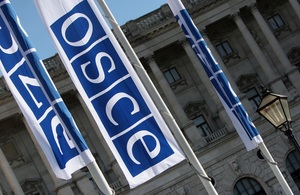Nothing could provide more compelling or tragic proof of the necessity of global cooperation than the pandemic which has swept the world and claimed over 3.7 million lives.
For the first time since the onset of this catastrophe, leaders of the G7 will meet in person for a summit that I will chair in Cornwall in the United Kingdom. I have also invited the Prime Ministers of India and Australia and the Presidents of South Korea and South Africa, allowing a broader gathering of fellow democracies and free societies.
Our shared task is to overcome the pandemic, minimise the risk of any recurrence and build back better after this tragedy.
Around the table in Cornwall will be the world’s biggest and most advanced economies, ready to deploy our capabilities and expertise against a common enemy.
The genius and perseverance of our scientists has given us safe and effective vaccines against COVID-19. Now our most pressing task is to use them to protect humanity as swiftly as possible.
The UK helped to established COVAX, the global alliance that has so far supplied 80 million doses to developing countries. Almost all have been the Oxford-AstraZeneca vaccine, developed with British government support – using expertise from every part of the UK – precisely so that it would be cheap to administer and easy to store, capable of protecting the maximum number of people worldwide.
Britain has contributed £548 million to COVAX and we will also donate the vast majority of any surplus doses from our domestic vaccination programme.
But in the heat of emergency, we must all strive even harder. So I want the G7 to adopt an exacting yet profoundly necessary target: to provide one billion doses to developing countries in order to vaccinate everyone in the world by the end of next year.
Nothing like this has ever been tried before and if you doubt whether it can be done, I would urge you to take heart from the unprecedented feats already achieved in the adversity of this pandemic. Our scientists devised vaccines against COVID-19 faster than any disease had ever been overcome before. Britain and many other countries are inoculating their populations more swiftly than anyone thought possible.
Now we must bring the same spirit of urgency and ingenuity to a global endeavour to protect humanity everywhere. It can be done, it must be done – and this G7 summit should resolve that it will be done.
But the reality is that even if we succeed, our efforts would count for little if another lethal virus were to emerge and inflict disaster all over again.
So we need to strengthen our collective ability to prevent another pandemic and provide early warning of future threats, including by creating a network of surveillance centres – a Global Pandemic Radar.
Our scientists took just 300 days to crack COVID and produce the vaccines, but we need to be able to respond even more rapidly. This G7 summit will begin a new effort to accelerate the development of vaccines, treatments and tests for any new virus from 300 to 100 days.
Even as we minimise the risk of another catastrophe, we have an obligation to ensure that something good might come from today’s ordeal. We must build back better with a global economic recovery based on greener and fairer foundations.
It remains a moral outrage – and a grave impediment to economic growth – that millions of girls around the world are denied an education, holding back the development of entire societies. Our shared goal must be to get another 40 million girls into school by 2025. I will ask the G7 and our guests to contribute more towards the Global Partnership for Education’s target of raising $5 billion for schools in the developing world.
As more children enter the classrooms, we must create jobs to match their talent and safeguard the environment they will inherit. The G7 can take forward both aims by supporting a green industrial revolution and promising to halve our carbon emissions by 2030, in order to limit the rise in global temperatures to 1.5 degrees.
We will bring the world together to strive towards this essential goal when the UK hosts the COP26 conference in Glasgow in November. In the meantime, I want the G7 to safeguard biodiversity for future generations by pledging to protect at least 30 percent of our land and oceans by 2030.
And we should offer developing countries the high quality and transparent investment they need to build clean and green national infrastructure, turbocharging their economies.
This is a compelling agenda for global recovery, ambitious yet achievable, provided we summon the will and the ingenuity. Britain is privileged to chair the G7 and to play our part, alongside our kindred democracies, in setting this immense effort in train. The scale of the challenge demands no less.
